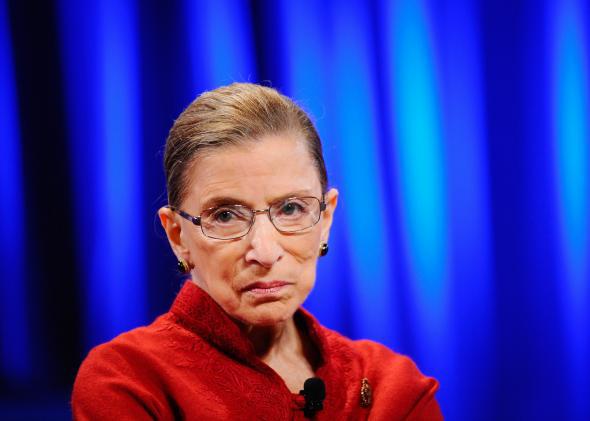How soon you forget, Dahlia! You and I began this interchange as a duo one dozen Junes ago. I’m delighted to see how it has grown over the years. It was great to have Judge Richard Posner and professor Eric Posner last year, and now to welcome professor Laurence Tribe.
You wonder what to make of Justice Scalia’s admission that he hates rock ‘n roll music. I think that’s too bad. His jurisprudence might well be improved by careful study of Chuck Berry. (I’m only partly kidding. I’ll say why before the week is out).
You asked more seriously about retirement rumors. You would have to have me drawn and quartered before I would express a view about whether any justice will or should step down. That said, no one I have heard from expects such a retirement announcement this year—but then again, such announcements have often come when least expected.
I once asked the late Chief Justice Rehnquist, as part of a public interview I had with him at Duke Law School, whether he thought it was inappropriate for a justice to take into account the political party of the president in power in determining when to step down. He replied that he believed it perfectly appropriate to do so, observing that a retirement decision is not a judicial act.
In terms of opportunities to make Supreme Court appointments, some presidents seem to have made their own luck. Jimmy Carter and Lyndon Johnson were the only two 20th-century presidents to serve a full term in the White House without having a Supreme Court vacancy occur on its own. President Carter apparently thoughts this was just his luck or God’s will or whatever.
President Johnson, on the other hand, seized the day and deliberately created both of the vacancies he filled. Wanting to appoint Thurgood Marshall and Abe Fortas to the court, Johnson first appealed to the vanity of sitting Justice Arthur Goldberg by telling Goldberg that only the former labor lawyer’s special mediation skills could negotiate an end to the devastating Vietnam War. (Soon after tendering his resignation from the court and being installed as U.N. ambassador, Goldberg realized he had been played.) To create a second vacancy, Johnson appealed to the filial devotion of sitting Justice Tom Clark, letting it be known that he would be interested in appointing his son Ramsey Clark as attorney general were it not for the awkwardness of his having a father on the Supreme Court. (These are the best examples I know of the observation that Johnson’s strength was that he knew every man’s weakness.)
The court that sits at the end of this term is remarkably predictable in terms of how most justices will end up in most cases. That was not so my early and middle years in the profession. The end of the term was much more a matter of guesswork as long as some combination of Justices Potter Stewart, Byron White, Lewis Powell, and Sandra O’Connor were on the court. In most major cases, the vote of at least two of those Justices was essential to victory and the vote of none was easily predictable.
I miss those days.
